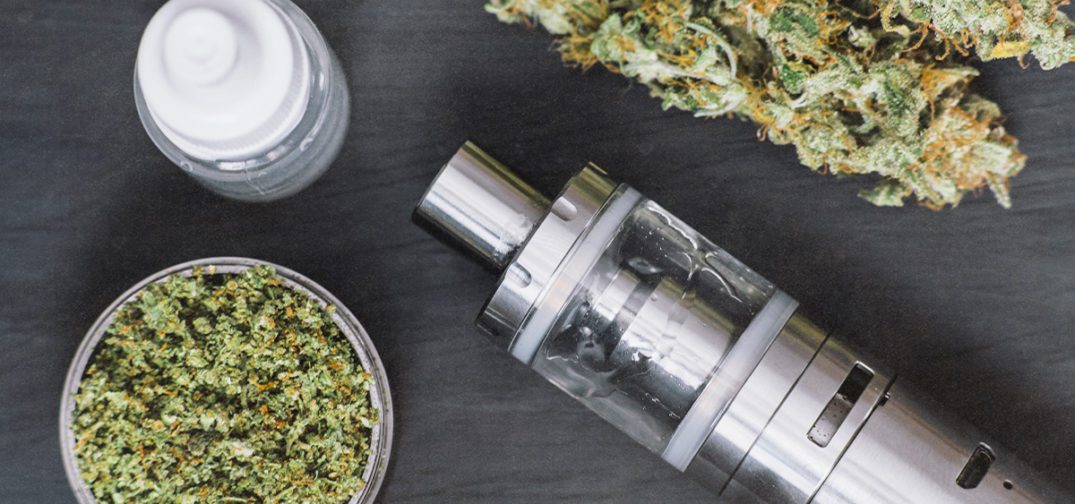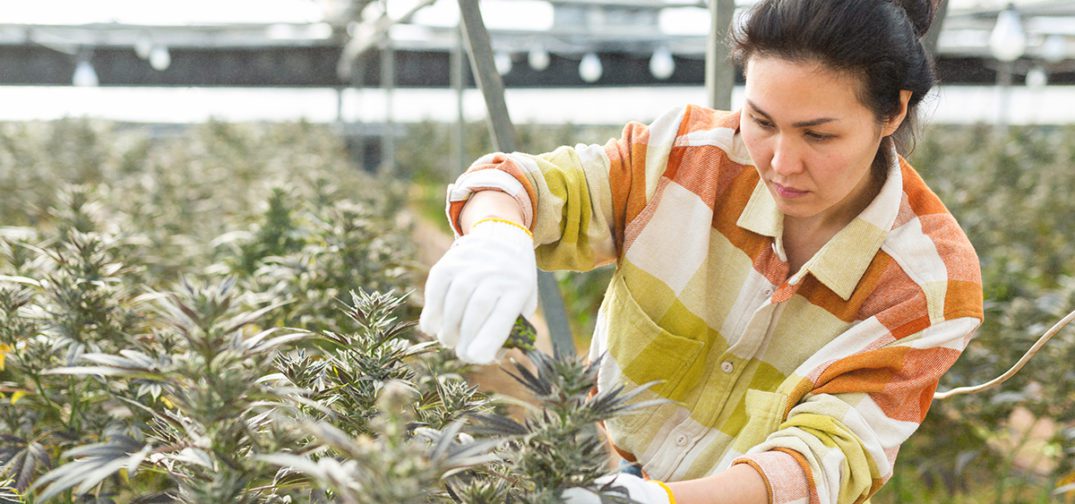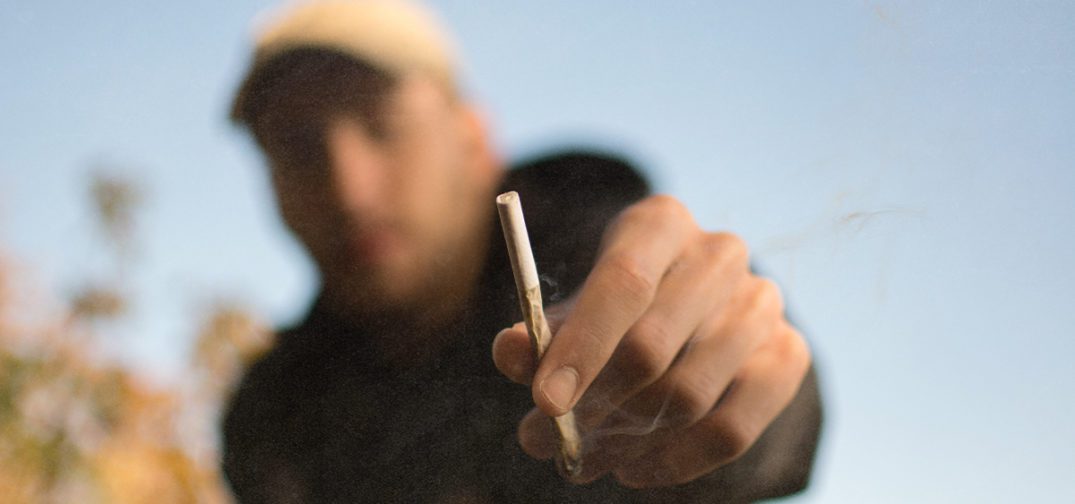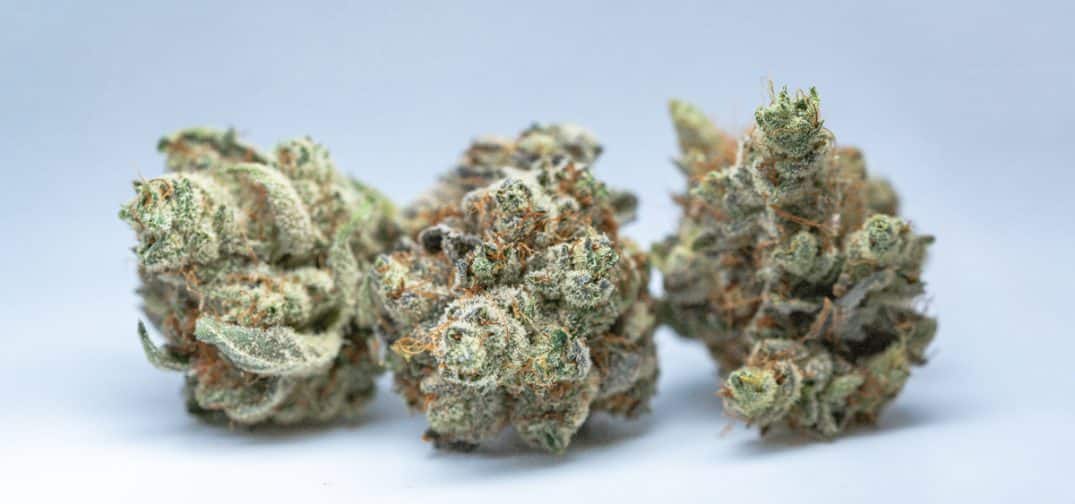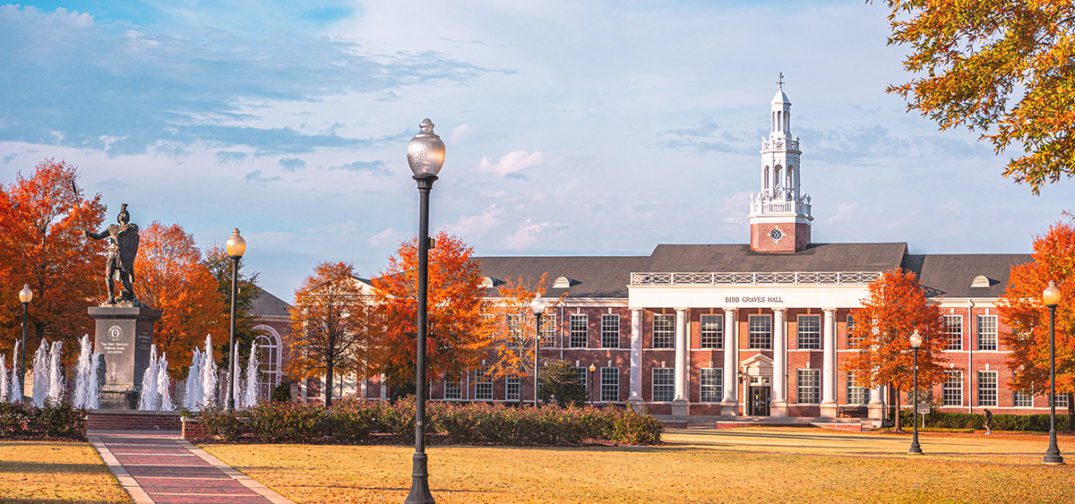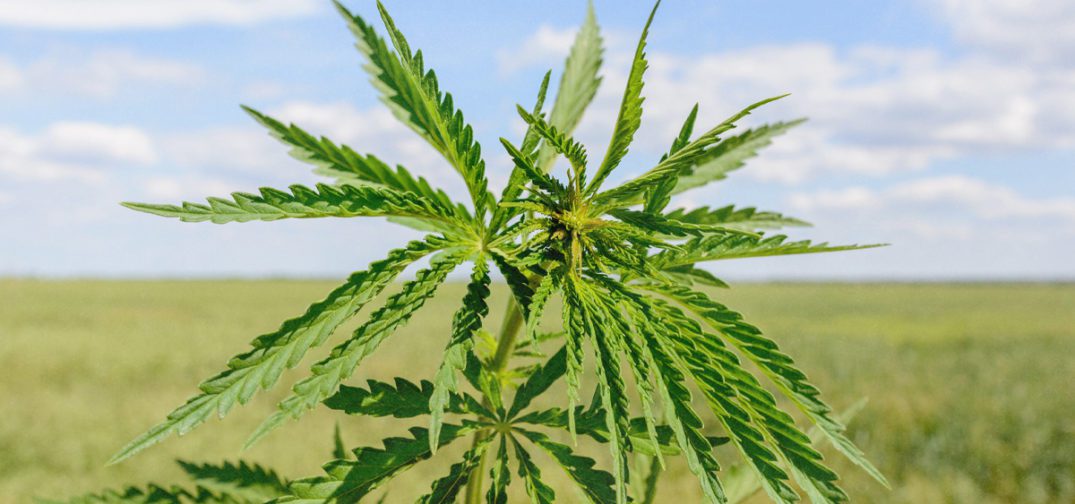For decades, cannabis research in the U.S. was hindered by steep federal requirements, foot-dragging enforcement agencies, and an archaic rule limiting the source of research-grade cannabis to just one cultivator in Mississippi. But thanks to a lawsuit against the Drug Enforcement Administration (DEA) by Dr. Sue Sisley MD, a doctor who spent years trying to get federal approval for her study that sought to investigate the therapeutic effects of cannabis for veterans with PTSD, the path for real cannabis research has never been more clear.
Shane Pennington was the attorney who worked pro bono with Dr. Sisley to see that lawsuit to fruition. In this podcast interview, our host TG Branfalt returns to discuss those developments with Shane as well as other significant rulings. Shane also discusses his background before joining the cannabis cause, his current work with Vicente Sederberg LLP, his advice for lawyers or law students who are interested in cannabis, and more.
You can listen to the full interview via the player below, or keep scrolling down to find a full transcript.
Listen to the podcast:
Read the transcript:
Kevin Lance Murray: This episode of the Ganjapreneur Podcast is brought to you by The Sesh, a new podcast from the Outlaw Report, the essential news source for cannabis politics, business, and culture in the Mid-Atlantic region. I’m Kevin Lance Murray, host of The Sesh, and you can listen to all our episodes on Apple Podcast, Spotify, or by visiting the outlawreport.com/podcast.
TG Branfalt: Hey, there. I’m your host TG Branfalt and thank you for listening to the ganjapreneur.com podcast where we try to bring you actionable information and normalize cannabis through the stories of ganjapreneurs, activists and industry stakeholders. It’s been a long time since I’ve hosted an episode of the podcast, but recently I had the opportunity to interview Shane Pennington, the lead council for New York-based Vicente Sederberg LLP, which is a cannabis-focused legal practice, about a letter that he had written to the DEA that sort of sparked this controversy about seeds. But before we get into that, how you doing, Shane?
Shane Pennington: Doing great. Thanks for having me.
TG Branfalt: It’s a pleasure. Like I said, we had spoken about the seeds issue a couple of weeks ago, and we started sort of jawing about your history and how you got into the space. And I was really fascinated by that. And so I was like, “Let me host another podcast and get this on record.” So let’s start with you, man. What is your background?
Shane Pennington: Yeah, so I graduated law school in 2010 and went very kind of square route for several years, that I clerked for several federal judges, had a above top secret clearance with the federal government where I was doing FISA, which is like Foreign Intelligence Surveillance Act stuff in DC, and then went and joined a Supreme Court practice of a big law firm in Houston, where I’m originally from. And after several years of doing Supreme Court cases for companies like Halliburton and Valero and that kind of thing, I decided… I got offered this pro bono gig to help a scientist named Dr. Sue Sisley try to get her application to grow cannabis for research out of a delay hold at DEA. So it was kind of just stuck and DEA wasn’t getting back to her. And I knew nothing about cannabis policy, I knew nothing about the Controlled Substances Act, I had zero background. I mean, my dad’s a Methodist minister. I grew up very straight laced.
And there was no judgment, I’m actually kind of a libertarian politically. So I had no judgment, but just my life, it had just had never been an issue for me. But since what Dr. Sisley was doing was for vets, she was trying to research cannabis for veterans suffering from treatment resistant PTSD and chronic pain, I thought, “Well, I’ll try to help her,” and dug into it and ended up beating the DEA in a series of lawsuits from 2019 to 2021. And now she has a license to grow her own cannabis and her studies are going forward. And in the process of doing all of that, I became obsessed with… I mean, learned all about it, realized how meaningful the work was and so I was like, “Man, these cases for Valero and Halliburton just aren’t as interesting or as meaningful. I mean, to me.” And so I left the big firm and came and joined Vicente Sederberg and now do impact litigation for cannabis reform full-time.
TG Branfalt: So you say you had no experience in cannabis, what in your background did you draw from most to sort of enter this space or get really acquainted with it?
Shane Pennington: That’s a great question. So turns out cannabis law, and this is kind of nerdy, but I mean, it’s not really its own thing. People think of it as cannabis law, but it’s not. It’s actually administrative law because administrative law is the law of agencies, it’s how agencies regulate people. So your car is regulated by the Environmental Protection Agency, the food you eat is the USDA, the Department of Agriculture and so forth, your taxes are by the Internal Revenue Service, which is a federal agency, right? And so I specialized in suing those federal agencies on behalf of regulated parties, like Halliburton often has to deal with the EPA and the SEC and all of this. And even pharmaceutical companies, I would help them as well with FDA and FTC and all these different agencies.
That’s what I specialize in, it’s a very nerdy, very nuanced, very complex area of law. And it turns out that cannabis is governed by federal agencies, the Drug Enforcement Administration, the Food and Drug Administration, Alcohol Tobacco Firearms, Customs Border Protection, which is Homeland Security. So you just go down the list and I was like, “Man, that’s right up my alley.” Now the laws are different for each regulated industry, but it turns out that I was a specialist in exactly what these substances, the laws that govern them, and so when I got involved in it, even though I wasn’t familiar with the particular regulations and so forth, I was very, very, very prepared to sue the DEA. And that’s why… DEA’s not used to getting sued like that. I mean, I guess they get sued a lot, but it’s no offense to people who are practicing in this space, it’s just that I’m a specialist in this.
Most people who get a cannabis case are the ex-prosecutor or the guy from some local Bar Association who takes a traffic ticket case and then they do the best that they can with it and they… Look at what they do, they kick the shit out of me, but this is what I specialize in and I don’t think DEA was used to getting fastballs coming over the plate like that and so we got a series of quick victories. And I should say, I should add quickly, that I wasn’t doing this alone I had a lot of help from a lot of different people, but the point is it was really exhilarating to get to apply skills that I’d been using on behalf of refiners and Fortune 500 pharmaceutical companies to help a scientist struggling to do research for vets.
TG Branfalt: Is that why you made the switch, because to you it’s a bit more… I don’t know, friendly?
Shane Pennington: I mean, it’s a lot more meaningful to me and I don’t mean to say it’s not meaningful to help big companies, it’s just that there’s so many lawyers. I knew when I left the firm I was at, I was at a firm called Baker Botts, which is a great big Am Law 100 law firm, it’s a great law firm, great people, very, very, very talented lawyers there. And I went to another law firm called Yetter Coleman, which is a top boutique firm, it’s a few lawyers and they’re all very, very talented, very well compensated too and a lot of they’re all still my good friends. And look, the work they’re doing is tip of the spear of legal work, no doubt about it. But I knew when I left, there would be 20 very talented lawyers there to fill my spot, you know what I mean? Harvard and University of Chicago, et cetera, are going to keep pumping out lawyers and they’re going to keep filling those spots.
Whereas there was nobody really doing this work, that level of work, in this space because the federal government hadn’t been enforcing the law. So there’s no demand for it. Everybody was trying to avoid the federal regulators, not engage them. But Sue Sicily was this exception, because she’s this scientist who’s trying to do everything by the book. And she was getting stonewalled by the federal agency. And they’re not used to having people fight back against them cause nobody wants to screw with the DEA. But under these particular circumstances, we definitely did want to throw down and we did. And that was very meaningful. I felt like I was doing something that nobody else was doing at this particular moment in history and with federal legalization around the corner. And of course it’s a bigger corner than I thought at the time, it’s taken longer than I realized when I came in as a newbie.
Yeah. But I mean, like I said, I didn’t know that much about the politics. Anyway, I knew that it was coming and so I thought, “Man, I could get in here and start shaking things up right before legalization and maybe I’ll be able to have a practice out of this on the other side.” But it was worth it just to do all the impact litigation, all the pro bono work was very meaningful. It meant a pay cut for me, but the compensation in terms of bringing meaning to my life and making it possible for me to use my skills in a way that no one else was there… no one else was doing this. That was very exciting.
TG Branfalt: So when you get the call or however you get in touch with Sue Sisley, what is your initial sort of reaction? What’s your gut tell you?
Shane Pennington: Yeah, so it’s actually funny how I got the call. So I said I was at this firm Yetter Coleman just before I made this switch, and there’s a guy there named Matt Zorn, who is… he’s a very talented, very, very skilled litigator at this firm, too, in Houston and he went to Columbia Law School, brilliant guy. And we had never worked together on a case, but he went to South by Southwest in Austin and I didn’t go, he went. He met Dr. Sisley there, she gave a talk and she was like, “Nobody will represent me. My application to DEA is stalled out. Nobody’s going to help me. I can’t get a lawyer. I don’t have any money.” And Matt’s like, “Man, I know the guy who sues agencies, he’s the guy two doors down from me. That’s all he does is sue federal agencies. And he’s really good at it. I should go see if he’ll take it on.”
So he came back and he was like… I mean and he and I had talked and we got along pretty well, but we had never worked together, we had never spent that much time together, but he came into my office and he was like, “Hey man, there’s this scientist that I met at South by and she’s a cannabis scientist.” And I’m like, “Okay.” And he’s like, “Yeah, and she’s got this case and her thing is stalled, her application is stalled at DEA.” And so when he said that, I was like, “Look, man, it’s not going to work.” Because basically when you sue an agency, the first thing the court’s going to ask is, “What is it that the agency did that you’re saying they did wrong?” And if your answer to that is, “They haven’t done anything and I want them to do something.” In other words, it’s their failure to act that is illegal, you’re fight…
I mean, that’s like, it’s hard enough to sue the government when they’ve done something clearly wrong, right? They took your house from you because they said that it was on waters of the United States or something like that with the Clean Water Act. Even if it’s clearly wrong, it’s still very difficult to sue the federal government. When the federal government’s up against you in court, there’s a presumption that the government is right and you’re wrong. That’s just how it is and you’re fighting that uphill battle no matter what. But when you’re saying the government should have done something and it hasn’t, that is three times as hard. And the reason is because the court doesn’t want to tell an agency how to prioritize its duties. So say an agency has lot, and they do, they have lots of things to do, they have a limited budget, no court wants to tell them, “You’ve got to do this first and that second and third,” because that’s considered an agency’s decision, they get to decide. Even if they have to do it, they get to decide when they do it and how they do it.
And so I told him, I was like, “Look, dude, that’s a losing battle. You’re not winning that.” He was like, “Will you just look at it because it’s been years that they’ve been sitting on this. They won’t talk to her.” I was like, “I’ll look at it, but I’m telling you, it’s going to be very, very challenging and I don’t think we’re going to win. And that’s why she hadn’t been able to find a lawyer.” So I started looking at it and I knew it would be very, very difficult, but her story was just so compelling. I mean, she is a legit scientist, she’s never broken a law, she’s straight down the middle, trying to… I started looking at it’s like the government is saying cannabis needs to be in Schedule I because there’s no research. And so then she’s trying to do the research and they won’t let her.
TG Branfalt: And, I’m sorry, but if I’m not mistaken, this was during the period of time where they’d said that they were going to open more licenses.
Shane Pennington: Yeah. Yeah. In 2016, that’s right. Now, that’s a very important point. They actually solicited the application. And here’s the deal, it was at the tail end of the Obama administration. This is 2016, they solicit the applications as Obama is on his way out the door and in comes the Trump administration in Jeff Sessions and all of a sudden they slam the door shut, it’s radio silence and as somebody who works on these cases all the time, of course, I mean, you don’t have to be a rocket scientist to see this. It’s like, that’s obviously political. And so that didn’t look good and even though the standard was going to be very difficult to overcome, I felt like it was worth a shot at least to raise awareness of the issue. And so we went to court over it. And as soon as we did, we wrote a really scathing opening brief. And we went to a court I clerked on so I knew how things worked there and-
TG Branfalt: That’s smart.
Shane Pennington: Yeah. And pretty soon the DEA folded. They didn’t want to fight it, they just went ahead and started processing her application.
TG Branfalt: Really?
Shane Pennington: Yeah. Yeah. And actually a series of dominoes fell, man. It’s insane. I don’t know how much we’ll be able to cover, but suffice to say… Let me just give you the punchline first, okay? By the time it was said and done, it turned out, everybody wanted to know why were they not processing these applications? What was the deal? They said they wanted them, why are they not processing them? And they’d actually gotten letters from senators on both sides of the aisle and other lawmakers, right? Democrats, Republicans, what is going on? Tell us the explanation. They had hauled multiple acting attorneys general in front of different committees of the Senate saying, “What’s up, we need this. There’s a veteran suicide epidemic. We have heard that this cannabis is helping these vets, but we don’t know what the risks are, if it’s helpful. You guys say we need the research, what’s going on?”
And DEA would say, “We’re processing the applications as fast as we can. We’re doing everything we can.” For years this was said. So everybody wanted to know what the answer was. Well, our lawsuits uncovered the answer and it’s unbelievable how it all went down. But the answer was that there was a secret memo from the office of legal counsel, this like Jedi council of secretive legal ninjas that operate in the executive branch, and their whole job is to settle disputes within the executive branch. So if like DEA disagrees with FDA or something like that, they will send it to this OLC and this OLC is just very, like I said, most people haven’t even heard of them. And it’s this little group of brilliant attorneys who just sit in this room and write opinions that govern the executive branch. So no matter what any agency says, if OLC says it’s X, Y, and Z, that’s the law on the executive branch.
And so what happened here was… And oh, and all its opinions are secret unless they decide to publish them. So it’s this, if you remember-
TG Branfalt: Or they get leaked.
Shane Pennington: What’s that?
TG Branfalt: Or they get leaked.
Shane Pennington: They do get leaked. So if you remember the Torture Memos under Bush, that was OLC. When the Russia stuff was going on, the Mueller investigation, OLC got involved there. They’re in the background of all the biggest stuff that’s happening in the executive branch. I mean, this is very spy versus spy type stuff.
TG Branfalt: So was it your case that brought these memos to light?
Shane Pennington: A settlement in a case that we brought actually forced DOJ to release the OLC opinion, but explained why they were delaying the applications, were refusing to process them and the answer, get this. The reason they weren’t processing them was because DEA’s policy, called the NIDA Monopoly, had been violating international law for 50 years.
TG Branfalt: And you’re talking about the farm in Mississippi?
Shane Pennington: Yep. Yep. In particular, there’s a treaty called the Single Convention on Narcotic Drugs and it says that a single government agency has to govern marijuana cultivation if a country’s going to allow marijuana cultivation. This is ’61. So this is back when international… and it still is, this still is international law. But it sounds crazy because all these countries now allow marijuana cultivation, it’s obviously happening. That’s still the law under this treaty that the US and all these other countries are signatory to. It says a single government agency has to govern, but in the United States, NIDA and DEA, NIDA is the National Institute on Drug Abuse and DEA, which is of course two agencies, violates the convention and so the OLC said, “We are not in compliance with this treaty because of your NIDA Monopoly and so we can’t move forward with anything until you fix that.”
So DEA had to make all new rules. That’s why these new rules came out in 2020, or I guess it was 2021 by the time they actually were final, and then they got the process going. But they were just sitting on it because DEA… Nobody was very eager to tell Congress, “Yeah, we’ve been violating international law for half a century.” And what’s crazy about it too is… but that’s true. You can look it up. You can look it up, it’s on DOJ’s website. It’s called Licensing Marijuana Cultivation and Compliance With a Single Convention. If you Google that, you will find the OLC opinion that they publicized as part of a settlement. I’ll send it to you. I’ll send you the settlement.
TG Branfalt: This is unbelievable.
Shane Pennington: Right. Yeah. No. And I mean, it’s one of those things where you just start pulling the thread on the sweater and you just keep pulling it and pulling it and pulling it, and finally the emperor’s just standing there naked.
TG Branfalt: Were you just floored by all this? I mean, you’ve been doing administrative law, was there anything even close to this that you’d ever…?
Shane Pennington: That’s why I quit my lucrative, high-powered job to come do this all the time. I was like, “Listen, if it’s low hanging fruit like this.” And there is. There is a lot of stuff. And I mean, dude, this was a secret opinion. So what’s crazy is no one will ever understand this is such nerdy stuff when I try to explain it to people that their eyes kind of glaze over, but for me as an administrative law nerd, this was like… I’m sitting there, Matt and I are in the office and I honestly can’t remember which of us… how it happened… what the exact conversation was, but we’re sitting there and we’re trying to figure out what the answer to this question was. And one of us, and I don’t remember whom, said, “It’s got to be an OLC, I think.” Because it’s…
TG Branfalt: So you just knew that in your gut?
Shane Pennington: Because that would be the only thing that could be secret that they wouldn’t want to tell that could cause DEA not to move forward because they can’t, because PLC said so and yet it wouldn’t be public. And so what we did was we sued under the Freedom of Information Act and we said, “Listen, if you’ve changed the policy that’s governing our client, you’ve got to tell us that policy.” Which is true. And so we sued them and we said, “And also we need to do it on an emergency basis because we shouldn’t have to wait.” And at first the DOJ attorney on the other side was like, “You guys are insane. This is not happening. I don’t know what you think you’re talking about, but nobody gets…”
TG Branfalt: Really?
Shane Pennington: And then a week later, two weeks from the day we filed the lawsuit, the FOIA lawsuit, Freedom of Information Act, two weeks later, the guy called us and he was like, “Okay, yeah. We’re ready to settle it. We’ll post it on the website.” And we were like, “Oh man.” That’s like zero to 60 instantly. That never happens. And yeah, we were totally floored. I was like… I thought we were going to… Honestly I was like, “Dude, we’re going to be famous, man. This is big time.” But of course it happened during COVID and nobody cared and that’s stuff that I think people care when you tell them, but it’s so hard to understand it. And the federal government did everything they could do. They didn’t go to Congress and say, “Hey guys, remember all those times we testified to you and told you we didn’t know what the reason was. We’d like to correct the record.” Nobody ever did that. Nobody ever followed up.
TG Branfalt: Well, and from… I mean, a settlement’s also a lot quieter. You don’t go through all the motions of a trial and dates.
Shane Pennington: And we didn’t want to go blow the lid on it too much at the time, because we were trying to get our client her license. I mean, at the end of the day, this was cool for us. It’s like the little tiny highlight reel that my mom plays at family reunions or whatever about her son doing cool stuff or whatever. It is cool for me, but ultimately we have a client, we wanted her to get her license. So the settlement was we’re not going to press this. You published it, we get access to it. We’ll move forward. And our client got the license, but now years later, obviously it’s… Not years, but a year later, I can talk about it and it’s not violating the settlement agreement.
But another funny thing about it, the guy who wrote the OLC opinion, his name is Henry Whitaker. This guy is now the Solicitor General of Florida, he clerked for the same judge that I clerked for on the DC Circuit so I’d see him at law clerk unions and stuff, and the judge that we clerked for, David Sentelle, he’s this legendary DC Circuit judge, and one day we were out, he smoked cigars in DC with his clerks, and it’s the chance to get to talk to the judge, ask him for life advice or whatever. So one day I asked him, I was like, “Who’s your best clerk ever? Who’s the best, the smartest, the brightest, the best writer or whatever?” He’s like, “Henry Whitaker by far is the best clerk I’ve ever had.”
So when I saw Henry Whitaker wrote this thing, I was like, “Oh my God.” And of course it’s brilliantly reasoned, it’s perfect and it says, yeah, “DEA, since the very first day the NIDA monopoly ever existed, it was illegal and it caused the United States to be out of compliance with international law for half a century and it’s got to be corrected.” So yeah, I mean, that’s just insane. And I actually was giving a talk to a bunch of solicitors general last week about cannabis policy because all the states are very interested now in what’s about to happen, right? And so I was talking to them and I was talking about this case and I was looking out, I was like, “Man, is Henry Whitaker here?” Cause that dude still… He still intimidates me because this is legend to Sentelle clerks everywhere. But yeah, pretty crazy.
TG Branfalt: So what’s interesting is that the reason we sat initially was for your letter and about the seeds and I’m not going to rehash that, but that seemed to have got sort of a lot more traction than the sort of mind-blowing OLC opinion and that sort of thing.
Shane Pennington: Which is crazy. What does that say about our industry and the law? Everybody notices more a seed letter than they do this OLC thing, right?
TG Branfalt: Yeah. And I mean, one of the things that really struck me when we first talked was you had one very, very straight message that you wanted to send. Why was it so important for you to make sure that it was out there the way that you wanted it out there?
Shane Pennington: Well, because… So that seed letter… I mean basically long story short on that was after the 2018 Farm Bill, we figured out that seeds, tissue, cultures, genetics, because they’re below 0.3%, they’re hemp, not marijuana and their federal law, therefore at least at the federal law part, there’s no barrier to interstate shipment of them, which is a huge deal to people out there who, everybody under the state legal markets who are having to… they can’t get IP and genetics. There’s no way if you have genetics in California to get them to New York, for example, without breaking federal law, the assumption was and so you had to have all these work arounds. So we knew that was a big deal and so we wanted to let people know, “Hey, federal law is not a barrier here. I wrote to DEA, got them to say on the record that seeds are hemp and therefore they’re not marijuana under federal law.”
And that created this big splash, but I also knew that the law is incredibly complicated. And so just having DEA say that about federal law doesn’t mean that you can now just go put a bunch of seeds and clippings in a box, take it to Amazon and have them ship it all over the country and advertise it online. That is a much more complicated question cause you have to look at state law and all this, it gets incredibly complicated. But I knew as soon as we let that drop about what DEA had said, that all the folks out there who that was big news for were just going to immediately start shipping stuff and ignore all of the complexities and just say, “Yay, we can ship things everywhere.” And so I wanted to get it out there that that’s not true. There’s a lot more to it than that, you have to be very careful.
We let it drop, I said it a million times every time we would publish something, I’d be like, “Listen, this is complicated. This only resolves one piece of it.” And still the next day I wake up, I’m drinking my coffee and I’m looking at the news, and of course I have a lot of Google alerts for cannabis, marijuana, whatever, and I’m looking and sure enough, the first thing up there is One Simple Trick to Mail Cannabis. And I was like, “Oh no. The plane is crashing into the mountain.” And so I was glad that when we got to talk, I was able to tell people, get a bigger megaphone to be able to say, and let me say it again now that we’re on this podcast, do not think that you could just open up a seed business and start shipping interstate. It may be possible, but you need a very, very talented team of lawyers to help you do that. And I’m not just saying that because I mean, I got plenty of work, it’s not that, it’s just you will get arrested probably so be careful.
TG Branfalt: I do want to ask you too, because we only have a couple minutes, what role do you think that you and other cannabis-focused attorneys have in sort of relegating in some way information and disinformation in this industry?
Shane Pennington: Yeah. I mean, I think that right now, unfortunately, and, dude, it sounds like I’m bashing on other attorneys, I do not mean to do that at all, but I do need to say that attorneys need to know how to stay in their lane. I stay in my lane. I’m not an IP attorney. I told you my buddy Matt Zorn is and he’s an intellectual property attorney. I don’t tell him how to practice intellectual property. He doesn’t tell me how to practice federal administrative law.
In cannabis though, there has been no federal stuff going on for so long that there have been these shops that have opened up that are just do-it-all kind of attorneys. And frankly, the people in this industry are not risk averse and their attorneys have an appetite for risk too. And so these are the type of people who will be like, “Yeah, we can do it. Let’s do it.” There’s an F1 car sitting out there on a track and they’d be like “I can drive it, just give me the keys. I’m sure I can handle it.”
Whereas I come from a different way of thinking where I’m never going to go outside my lane. And I think that as the industry-
TG Branfalt: No F1’s for you?
Shane Pennington: What’s that?
TG Branfalt: No F1’s for you?
Shane Pennington: Not without a lot of lessons, man. Do you know how expensive an F1 car is? I think they light on fire easily, too, like, nah, that ain’t for me. So anyway, I think that as we get more sophisticated, more money pours into the industry, things start to open up, there are going to be a lot more attorneys with more areas of specialization who are going to come in and they’re going to discipline things. They’re going to tell their clients what I’m telling them, “Pump the breaks, let’s think this through.” And that’s going to be very important as things get more sophisticated.
I mean, that was a shock for me coming from big law where every client I have has a general counsel’s office with a hundred attorneys in it who then hire outside council for specialized things. Here, it’s just like everybody’s just Wild West, “We want to sue the government. Okay, let’s just do it. Let’s just write the complaint and just throw it out there.” And I’m like, “Man, we should think about this.” And I think there’s going to be a lot of that kind of self-regulating, learning to think before we leap more as the industry progresses and becomes more above ground, basically.
TG Branfalt: Dude, this has been so much fun and I know that you have very important lawyer things to do. So I don’t want to keep you too much longer. But let’s say that a law student who’s interested in taking sort of… going into the cannabis side of law, what would your advice to them be?
Shane Pennington: If you’re in law school and you’re wanting to do this kind of stuff, get in contact with me because I need help. And what I need is… Well, what I need is I need people who can write and I need hard workers. That’s the main thing. And I guess that if you’re not in law school and you’re thinking about doing this, or if you’re early on, I guess there are a couple of things. First thing is, you need to know your business and you need to have a business sense, because this is an up and coming industry and it’s going to start getting plugged into new things like the Amazons of the world are going to start getting involved, all these new regulators are going to come online. You need to learn economics, you need to learn business, you need to be kind of a Jack of all trades, but you really need to know your business.
We need people who understand this plant and how it works, and frankly, better than I do. I don’t know anything about it. That’s my weakness. That’s why I went to Vicente Sederberg where there are all these experts who do know. But that’s something you’re going to need to know. And then you’re going to have to work on writing. Writing is going to be a premium. I mean, I’m a pretty good writer and we need a lot of good writers and we need people who have experience in the federal government, too. So taking a few years to be a prosecutor, taking a few years to work at DOJ or being a public defender and then coming back would be very helpful because all my years clerking have helped me to understand how things work inside the government. That way, now that I’m on this side, I’m able to have thoughts like, “Oh, that’s probably an OLC opinion,” and then how to get it.
So I guess the bottom line is there’s no straight line to success as a lawyer. Everybody kind of takes all their experiences and they use them all and we all have different things we bring to the table. And so I would encourage people who want to do a practice like the one that I have to go do something else, honestly. Go get other experience and then come back to this. Because, again, I mean the biggest lesson that I’ve learned and the secret that I know that a lot of people don’t, is that there’s no such thing as cannabis law. There’s just law. And everybody who wants to do it because it seems cool or whatever, I mean, this is a complex area of law. You need to screw your thinking cap on tight and you need to really dot your Is and cross your Ts.
Cause I’ll tell you, one thing you’re going to find is that courts are very skeptical of cannabis cases. Every lawyer needs to look legit when they walk in the room, they need to look very professional. But if you’re representing a cannabis client, you need to look four times more professional. If the person on the other side of you has gold plated credentials, yours need to be platinum, you know what I mean? Because it’s almost like there’s still this stigma, especially among federal judges, some of whom are older. I’m not saying that they’re…. I don’t think they intend to do anything corrupt or unfair, it’s just there’s this latent bias that I think people have. I had it, man. When that case came across my desk, I had my eyebrow raised from the get-go cause I was like cannabis, what? What is this Bill and Ted’s Excellent Adventure or something. We take serious lawsuits here at this law firm. What is this all about?
And I had to read for a long time to realize that there are kids with epilepsy, there are people terminally ill with cancer, it’s not all… There’s a lot more to this and that the federal government for many, many years was blocking science, which is insane to me, science on things that could help people. And I think that once you get to where you can communicate that message in the right way, that’s when you can start making progress. But in order to do that, you need to work hard, get your grades right, get your experience right and then get hooked up with the right mentor, which would be me. So holler at your boy whenever you’re ready.
TG Branfalt: If people were trying to holler at your boy, Shane Pennington, how would they get in touch with you?
Shane Pennington: So they could email me at S.Pennington@VicenteSederberg.com, that would be the easiest way. And you can just go to Vicente Sederberg’s website, look me up, Shane Pennington, you’ll see my phone number there and all that. So, that’d be the easiest way.
TG Branfalt: Awesome. Dude, it’s been a pleasure. I’m really delighted that we got to do this after, cause when we were hanging up the phone last time I was like, “I want to talk to this guy for like another 45 minutes to an hour.” So I really…
Shane Pennington: Yeah. No, I’m glad you did it. I really am. I mean it’s important stuff and I appreciate you shining a spotlight on it.
TG Branfalt: No, thanks so much for being on the show and I’m sure I’ll find something with your name on it in the future come across my desk.
Shane Pennington: Absolutely. I hope so. If not, then something bad’s happened to me.
TG Branfalt: I’ll be in touch to make sure nothing bad happens to you.
Shane Pennington: All right, man. Good talking with you.
TG Branfalt: You can find more episodes at the ganjapreneur.com podcast in the podcast section of ganjapreneur.com on Spotify and in the Apple iTunes store. On the ganjapreneur.com website, you’ll find the latest in cannabis news and cannabis jobs updated daily along with transcripts of this podcast. You can also download the ganjapreneur.com app in iTunes and Google Play. This episode was engineered by us. I’ve been your host TG Branfalt.

